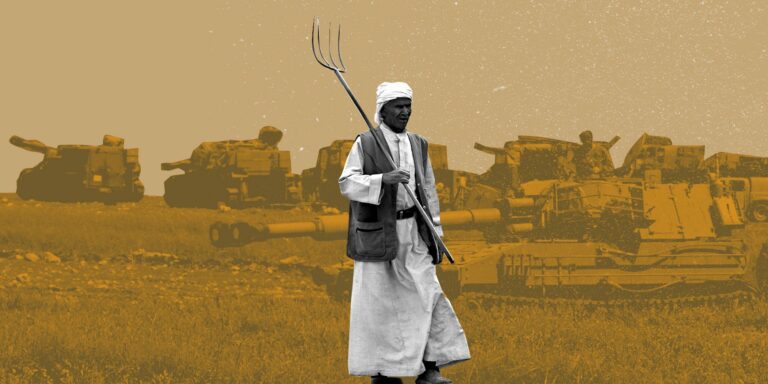The harshness of the global scene rages, and fear dominates the refugee camps in Lebanon as a result of the “Corona” virus outbreak. The old camps, with their homes glued together, have been transformed over the years into densely populated neighborhoods, buildings and electrical wires. Overcrowding does not help when trying to apply preventive measures, especially social distancing. As for the modern camps, they consist of modest tents, facilitating a wider and faster spread of the epidemic, with its inhabitants suffering mainly from a lack of health and medical services.
The Palestinian and Syrian camps in Lebanon lack the sanitation and water supplies necessary for the proper personal hygiene required to face the virus, nor do their residents have the luxury of quarantine or awareness of the guidelines needed to protect themselves.
As if that were not enough, refugees in Lebanon have been facing discriminatory restrictions that do not apply to the rest of the Lebanese population. At least 8 municipalities imposed a curfew that restricts the movement of Syrian refugees within specific time frames, justifying this move by citing fears of the “Corona” virus, long before the government called for a curfew at the national level; this happened regardless of the fact that refugee casualties have not exceeded three out of 541, according to official figures.
However, the Palestinian and Syrian refugees fear the specter of the spread of Corona in their camps. Here are the most prominent pictures:


Syrian refugees seeking shelter in an old building in Sidon, after the Lebanese authorities imposed a curfew. These residences do not provide the slightest forms of protection, as they lack sanitary and hygiene conditions. This is in addition to the overcrowding of the people under their roof, and the absence of the required protective supplies, such as masks, which constitutes a real danger.


A Palestinian woman carries a young man who is unable to walk, on her back, in the Sabra camp in Beirut. This woman is one of the many refugees who suffer from the lack of health and food resources even before the spread of ‘Corona’. The women there also lack access to their basic needs, such as sanitary pads, forcing many of them to use cloths and nylon bags as alternatives.


The lack of medical supplies, most notably facial masks, prompted young Palestinians in the Burj al-Barajneh camp in Beirut to sew masks and distribute them to the camp residents for free. It is noteworthy that these masks are made from the “keffiyeh” textile, which symbolizes the Palestinian cause and the struggle of its people.


The deficiency of face masks in the Syrian camps forced this mother to offer her mask to her child, and to instead cover half of her face with a veil to avoid being infected with the Corona virus.


Pictured here are children at an awareness seminar on the Corona virus that outlines how to avoid infection in the Syrian refugee camp. The irony is that during this seminar the children appear to not be taking any preventive measures.


A group of young girls standing on the balcony in a building that is under construction, in which they’ve taken refuge… The main issue arising is the spread of the virus in the overcrowded Syrian camps, where the possibility of adopting house isolation procedures is minimal.


A young Syrian refugee covering her face with a piece of cloth because of the lack of masks … The Lebanese authorities estimate the number of Syrian refugees at 1.5 million, less than a million of whom are registered with the United Nations High Commissioner for Refugees.


Corona virus exacerbates the hardships of refugees who have been living in extreme poverty for years inside Lebanon … Aid workers claim that refugees do not have enough water to wash their hands regularly, especially as they get water in their camps only by truck deliveries. In the current situation, obtaining health care will pose a dilemma for them as well.






